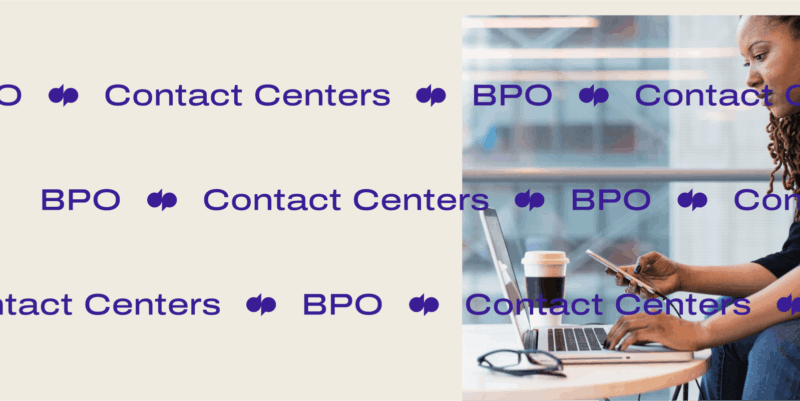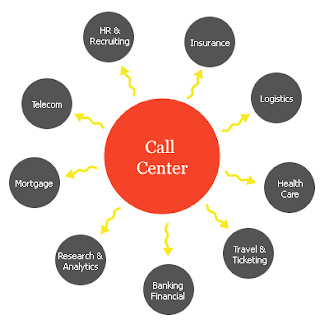BPO Contact Centers How They Work
Should you operate a contact center and also have agents in various countries, you’ve probably come across BPO contact centers and call centers.
But outsourcing isn’t the simplest factor to complete effectively. Among the primary challenges, obviously, is quality assurance (since it’s harder to handle a group or agents internationally).
But this can be a manageable challenge, and for those who have a great BPO answering services company setup, the advantages frequently weigh it. How do we choose the best BPO call center solution for you personally? And how will you delegate a located contact center effectively to ensure that there isn’t any drop-off operating quality, regardless of who your clients and callers finish up speaking to?
In this post, I’ll walk you through the fundamentals of making a BPO call center solution work for a business.
First, what is a BPO call center?
Business process outsourcing (BPO) happens when you delegate part of your company operations to some third-party company.
A BPO call center is definitely an outsourcing service that processes outgoing and incoming service users and requires others.
A quick note: “Contact center” vs “call center”
A call center is fairly self-explanatory-it’s a business’ department or team that is responsible for incoming and outbound calls. (Usually, really small companies wouldn’t have this simply because they don’t get enough calls to warrant the cost.)
Today, increasingly more companies are relocating to a “contact center” model rather than the answering services company model because, well, people aren’t just calling any longer and you want to make certain we are able to interact with people in the manner which makes sense for them. Digital channels text, messages, and email are increasing in recognition plus some from the newer video connections.
A contact center would facilitate all of those different interactions.
Long story short, contact centers are like call centers for the 21st century.
Understanding the types of contact centers
There are many different types of contact centers out there.
Some focus on researching the market, and a few behave as answering services, while some concentrate on a particular industry, like healthcare, or perhaps a particular function, like telemarketing.
Whatever your needs are, there’s probably a contact center out there for you.
Let’s look at a few main types.
Outsourced and in-house contact centers
In-house call centers are usually set up and managed through the companies themselves. Quite simply, in-house call center employees work directly for the organization.
Some companies label this “front office” and “back office.” Customer-facing employees or individuals who deal directly with customers work right in the front office. Employees who work behind the curtain on another deal directly with customers operating in the rear office.
Outsourced sales departments, however, are operated by third-party companies. These could be your BPO contact centers.
If you use an outsourced call center, their agents would be the ones who take your inbound and outbound calls—not your own employees.
Inbound and outbound call centers
Inbound call centers handle any kind of incoming calls from customers. When you call a company, you’re probably being helped by an inbound call center.
Outbound call centers make outgoing calls to customers and prospective customers. Frequently, outbound calls are utilized to sell an item or conduct research. If your company has ever known you to sell you something, they’re most likely working in an outbound call center.
Proactive and reactive call centers
This is a slightly different spin on the inbound vs outbound contact center comparison.
Reactive call centers wait for customers to arrive at all of them with an issue, and they try to solve the issue. This can be a standard model and most likely one you’ve encountered.
Positive call center attempt to address a customer’s issue before they need to achieve out. These contact centers are frequently analyzing customer accounts proactively and employ that knowledge of what’s happening using the customer or prospect to complete outreach.
Typically, these contact center agents have pretty robust call center software, CRM tools, and knowledge analytics that permit them to anticipate problems early and puppy nip them within the bud prior to the customer’s needs to refer to them as. Due to this, positive sales departments and phone centers usually lead to improved client satisfaction.
When is it time to outsource?
Knowing when it’s time for you to delegate is really a decision that’s unique to every business. There are two primary scenarios where long may be time for you to delegate.
- This is actually the less ideal situation, if your contact center operations happen to be extended thin, then outsourcing can expand your team and talents relatively rapidly. It would’ve been easier to delegate before you decide to arrive at this time, but better late than never.
- However, you are able to proactively review your business regularly. Knowing that the sources are restricted or is going to be extended soon, or you have other parts of the company you have to prioritize above an in-house answering services company, then it’s time to check out outsourcing.
They’ve customers and prospective customers calling every single day-and also to handle these incoming calls, they’ve contact center teams around USA and also the Philippines.
(Technically, Service Today has a type of “hybrid” BPO call center-they didn’t hire a 3rd party to operate their overseas contact center, however they did technically “outsource” by hiring overseas. Calls would mainly visit their Australia team, and then any call overflow could be routed to their USA-based team. This enables these to support their core business, but keep things cost-effective.)
A 3-step guide on outsourcing for call centers
Figure out what you need
Prior to committing to an outsourcing call center provider, consider why you’re outsourcing your answering services company, to begin with. The reason behind outsourcing points you in direction of who you should opt to handle your company.
Evaluate the kinds of calls and channels your company needs to be handled. Could it be mainly phone calls? Could it be customer support? Searching for any help desk? Based on a current survey, data sourcing was the main function outsourced by marketing services:
Choose the best service provider for your business
Now that you know what your business needs, you can look for the best service provider. Here are a few things to consider:
Local or overseas?
Do you want your BPO call center service to be located locally to your business? Or do you want to save money by outsourcing to another country? Both options have their pros and cons.
If you are having to pay more for the outsourced BPO contact centers than you’d to have an in-house answering services company, then reconsider where you’re expending money. Transition to some more cost-effective solution, just like a different BPO company or a mixture of in-house support and outsourced support.
Have a clear BPO strategy
Don’t enter into a BPO call center outsourcing situation without developing a technique for your partnership. You will be placing a critical part of your company inside a third party’s hands, would you like to make certain it’s a great fit? Set a method with goals and appearance-in because the partnership progresses.





Comments
Post a Comment